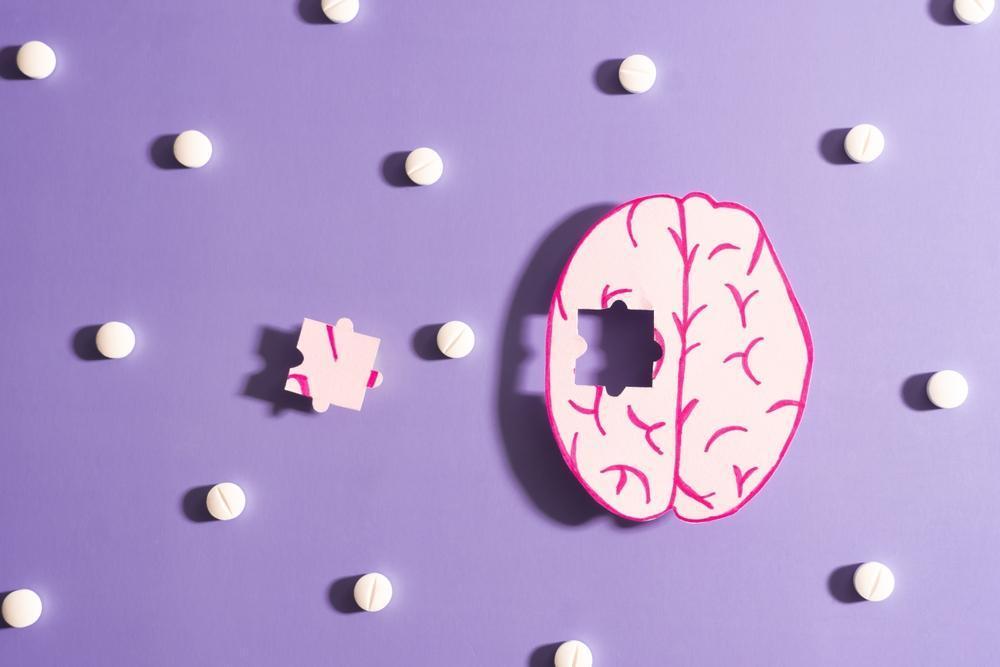After middle age, it’s natural for our brains to shrink slightly over time, resulting in declining memory and cognitive abilities.
Wu Guobin, director of Taiwan’s Xin Yi Tang Traditional Chinese Medicine Clinic, explained the causes and signs of brain degeneration in the Epoch Times’ “Health 1+1” program and introduced practical dementia prevention activities and brain-tonifying dietary treatments to help keep the brain sharp.
Warning Signs of Brain Degeneration
Wu said that if the following signs become apparent, it may be an indication of brain degeneration:
- Memory decline (e.g., forgetting recent and familiar things)
- Decreased language expression capability
- Difficulty identifying time, space, and people
- Reduced ability to think and work
- Personality changes
- Abnormal mood, sudden anger, anxiety, and depression
- Loss of normal behavioral abilities and inability to care for oneself
Start Preventing Dementia at 40
Dementia is a common neurodegenerative disease. Wu said that the older you are, the higher your risk for it. He, therefore, suggested, as good practice, that any attempt to prevent dementia should start as early as 40.
Research shows that after age 40, the size and weight of the human brain will decrease by about 5 percent per decade. The annual rate of brain shrinkage will possibly increase with age over 70.
Causes of Cognitive Deterioration
Wu said that brain degeneration is not only due to age. Overwork, poor sleep quality, anxiety and depression, excessive drinking, and poor eating habits can all contribute to damage to brain health.
Lack of vitamins B1, B9, and B12 and other nutrients can also affect the brain. For example, vitamin B12 is an essential nutrient for the development and growth of the central nervous system and is vital for maintaining its health.
Some conditions, including hypothyroidism and severe migraines, may also cause cognitive deterioration. Wu mentioned that, for example, a person suffering long-term migraine is a sign that there is insufficient blood flow to the brain, resulting in its being deprived of oxygen persistently and its gradual degeneration.
In addition, Wu said that post-menopause, women’s overall physical fitness starts to decline. Coupled with hormonal changes, psychological and physiological changes may work against a postmenopausal woman’s usual brain performance compared to earlier days.
How Does TCM Treat Brain Degeneration?
Wu pointed out that from a traditional Chinese medicine (TCM) perspective, there are three causes of brain degeneration: kidney deficiency, poor metabolism, and poor blood circulation.
1. Kidney Deficiency
TCM believes that the kidneys are intricately linked to the brain. When the kidneys consume too much energy, the brain follows suit. Symptoms include soreness in the back and legs, dizziness, thinning hair, dull complexion, and slow movement.
Wu pointed out that excessive sexual activity will seriously deplete the energy of the kidneys. To maintain proper brain health, practice sexual activity in moderation.
2. Poor Metabolism
When the metabolism does not run smoothly, grease and other waste products that cannot be metabolized or excreted normally by the body will accumulate. Symptoms include poor gastrointestinal function and heavy tongue coating.
Modern-day medicine also recognizes that abnormal accumulation of amyloid protein in the body can cause a variety of diseases. The accumulation of large amounts of amyloid-beta in the nervous system is considered to be the core biological hallmark of Alzheimer’s disease.
3. Poor Blood Circulation
Wu added that people who have suffered brain injuries may not have immediate noticeable pathological reactions at the time and only start to feel the symptoms of those earlier incidents more than 10 or 20 years later. The earlier injury likely affected the blood circulation in certain parts of the brain, disrupting and slowing the blood flow there, thus causing problems with brain function.
A 2018 study published in The Lancet Psychiatry surveyed nearly 3 million people and found that those who had suffered traumatic brain injury (TBI) had a 24 percent increase in dementia risk compared with those with no record of TBI.
4 Habits That May Adversely Affect the Brain
Wu pointed out a few daily habits that are bad for the brain in the long run.
1. Eating Too Fast
Wu said that eating too rapidly will result in less saliva secretion as required, which is detrimental to the health of the kidneys and brain. TCM posits that “saliva comes from the kidneys,” meaning saliva originates from the kidneys’ energy source. In return, saliva also has a nourishing effect on the kidneys. Wu advised that during meals, each mouthful should be chewed about 30 times. Chewing this way will induce the secretion of more saliva.
At the same time, the chewing motion can also exercise our facial muscles, help activate linked brain portions such as the hippocampus, and help promote blood circulation in the brain.
2. Napping for Too Long
Moderate afternoon naps have been proven to help rest and relax the brain, but the duration of each nap should be regulated. A
study tracking cognitive performance in older men found that compared with participants who napped for less than 30 minutes a day, those who napped 120 minutes or more a day were 66 percent more likely to develop cognitive impairment over 12 years.
Wu suggested that the best time for an afternoon nap is between noon and 2:30 p.m. for about 20 to 30 minutes.
3. Addiction to Short Videos
Wu said that short videos will damage memory and sharpness in task execution. Electroencephalogram (EEG)
studies show that increased addiction to short videos on mobile phones has hurtsentional functions. “If you are used to fast things all the time, your brain will not be able to calm down and think independently. And with your attention being too distracted, damage will be done to your memory.”
4. Multitasking
Research shows that simultaneous use of multiple media negatively correlates with performance in many cognitive areas, including poorer long-term memory and sustained attention. Wu said that dealing with too many things at one time will damage your memory. It’s best to deal with only one thing at a time.
2 Daily Habits for a Sharper Mind
You can do two things every day to help keep your mind sharp.
Wu said that after getting up early every morning, you can use your fingers to comb your hair and massage your cervical spine, which promotes blood circulation in the brain and makes your head feel refreshed.
It is mentioned in the TCM classic, “The Yellow Emperor’s Internal Medicine,” that the eyes reflect the mind. Wu shared his exclusive eye training routine, which can help make the brain sharper. The essence here is to focus your eyes on one point at a time when looking at something. He suggested a simple exercise. With the 12 numbers around the clock, look at one number at a time, from one to 12. Moving your eyes frequently like this can make your brain more flexible.
Brain Food
Wu recommends supplementing with the following foods to help enhance brain tenacity.
1. Egg Yolk Lecithin
Wu said that the structure of lecithin in egg yolk is remarkably similar to the phospholipid in the human brain, so it is easy to absorb and can nourish the brain cells and nervous system. Lecithin also helps soften blood vessel walls and prevent cardiovascular and cerebrovascular diseases.
He shared a case of a 45-year-old woman who often stayed up late and felt that her memory was not particularly good. She asked how she could improve her memory, and he introduced egg yolk butter to her. After taking it for seven days, she reported that her memory had improved greatly.
Studies have shown that egg yolk lecithin can protect the stomach and liver, support the utilization of fat-soluble vitamins, delay aging, and improve blood circulation efficiency. It is also used to improve the health of patients with schizophrenia or childhood autism and to improve memory degraded from Alzheimer’s disease.
Wu said that egg yolk lecithin products can be both purchased and homemade. To make at home, hard-boil 20 eggs, remove the yolks, crush them, put them in a pot, and fry them continuously. The resulting concentrated yellow-brown oily substance is egg yolk butter.
2. Ginkgo and White Fungus Soup
Studies show that ginkgo biloba can enhance memory and treat Alzheimer’s and other neurological diseases. Ginkgolides in ginkgo seeds protect the nerves and the heart.
TCM also uses ginkgo to relieve coughs and asthma, improve frequent urination, and fight the effects of aging.
Wu emphasized that ginkgo must be cooked before eating because it possesses certain toxic ingredients. Consuming 10 ginkgos a day and no more than 15 is recommended.
Here’s a recipe to try.
Ingredients:
- 15 grams (0.5 ounce) ginkgo
- 20 grams (0.7 ounce) white fungus
- 10 grams (0.4 ounce) powdered rock sugar
Preparation:
- Peel the shell of the ginkgo biloba.
- Wash and remove the stems of the white fungus and tear it into long flaps.
- Put the ginkgo and white fungus into the pot.
- Add 1 liter (34 fl. ounces) of water and boil.
- Simmer over low heat for an hour.
- Add powdered rock sugar and serve.
3. Walnuts
Wu also said that walnuts, with their shape resembling that of the brain, can supplement the brain. TCM suggests that walnuts have the effects of nourishing the kidneys and blood and moistening the intestines. They also can serve as a laxative. Modern medical
research has found that consuming walnuts every day also benefits cognitive function. The polyphenolic antioxidants in walnuts can inhibit or slow neurodegeneration and improve cognitive functionality.
4. Fruits and Vegetables
Research shows that green leafy vegetables may help slow cognitive decline during aging. Additionally,
supplementing with anthocyanin-rich berries may help prevent mental decline.
5. Fish
Fish are rich in omega-3 fatty acids.
Studies have shown that supplementing omega-3s through diet and nutritional supplements can improve memory and cognitive health. Wu suggested steaming or boiling fish but avoiding frying.
Some of the foods mentioned above may sound unfamiliar, but many can be found in health-food stores and Asian groceries. However, since everyone’s constitution differs, please consult a professional physician for specific treatment plans.















